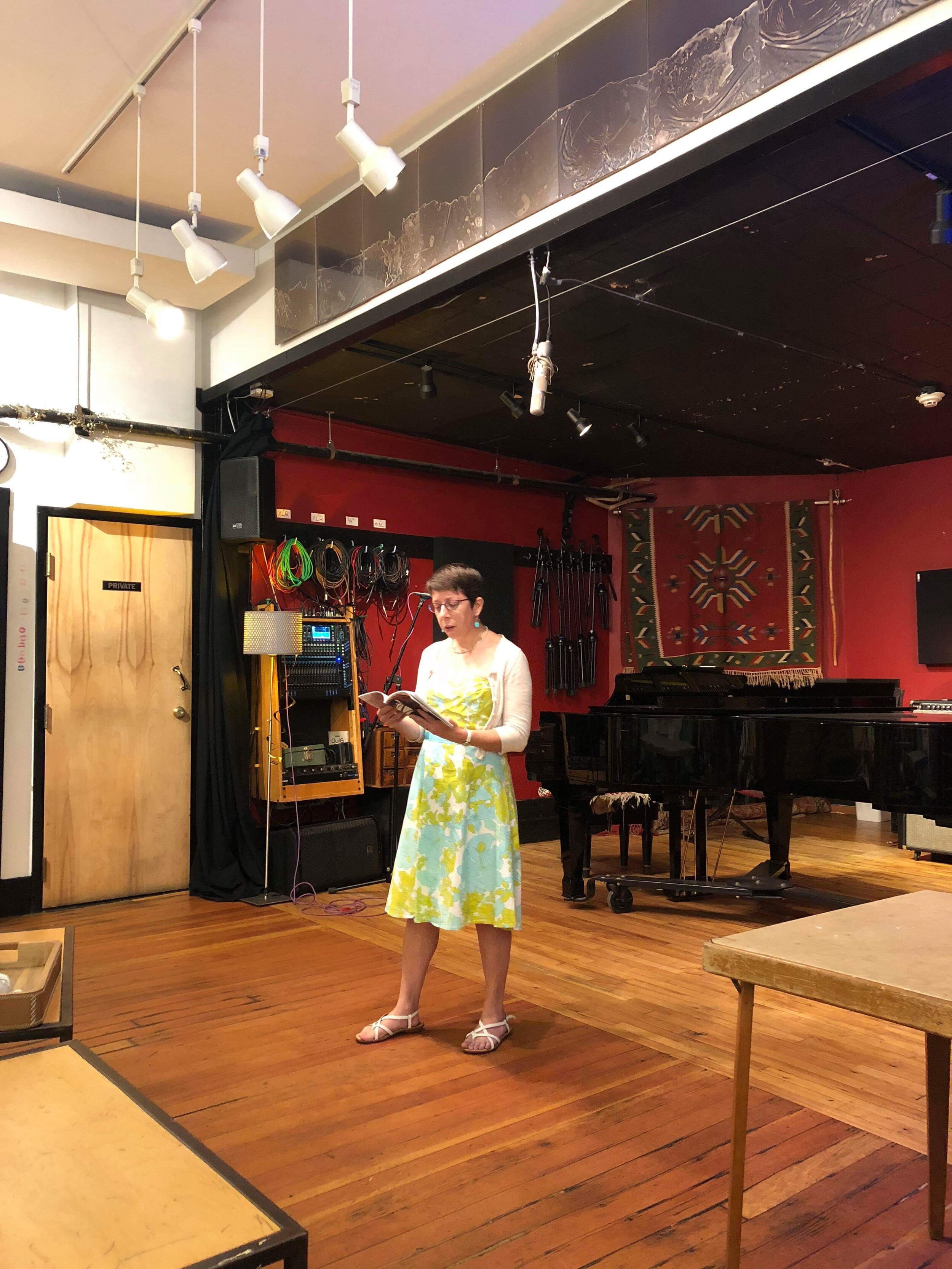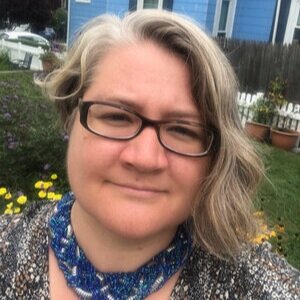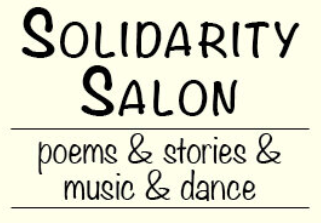Reading series interview: SOLIDARITY SALON
a conversation between Frances Donovan and founder Lisa DeSiro
How did the Solidarity Salon come about?
When my first book of poetry was published in March 2018 by Nixes Mate, I wanted to arrange some events to promote it. But my idea was that instead of just a reading, I’d organize a soirée that includes music and possibly visual art or dance. Since I’m also a pianist, I thought “well, I could play something.” And since I’m fortunate to have a diverse and vibrant network of creative artist friends, I thought “these are all folks I could ask to participate.”
I envisioned an intimate setting, with less formality than a concert performance but more variety than a traditional poetry reading. This is how I came up with the “salon” part of the name. Salons (an Italian invention of the 16th century) are gatherings of people, often in someone’s home and with a host, to present or discuss literature and art. So I sought out small community venues.
I then decided my events would primarily feature artists who are women, people of color, LGBTQ, and/or immigrants. This was a personal choice in response to the political climate, a way for me to be an ally and advocate. Hence the “solidarity” part of the name. I reached out to several people via email and Facebook, and in person, seeking participants. Lucky for me, the response was resoundingly positive.
Once I had participants lined up, I picked dates and booked venues. Next I created flyers and started publicity. And the series was born! I hosted three Solidarity Salons in 2018 (May, June, July) and three in 2019 (April, August, December). I’m now planning three for 2020 (March, June, September) and I hope to continue hosting three per year.
Did you develop it on your own, or do you collaborate with others?
I developed the series on my own, but for each event I invite others to collaborate and participate.
Thus far the Solidarity Salon has featured 22 writers, 11 musicians, five visual artists, three movement artists, and five theater artists. Anyone who participates is welcome to perform again in future salons, but I try to include new people at each event. I’m very grateful for all of these wonderful, multi-talented creative souls who have brought my idea to life.
Are you affiliated with any organization such as a journal, a press, a school, or a bookstore?
No.
What makes your reading series different from others?
My series is different from others in that it combines multiple artists and genres along with poetry. Each event features writers and musicians, plus visual arts (such as painting, photography, graphic design, textiles, sculpture) and/or movement arts (such as dance, martial art, yoga, theater). Also the series focuses on artists who are women, people of color, LGBTQ, and/or immigrants.


Who comes to your series?
Our audiences have included a mixture of friends and family who come to support the performers, as well as people from the local community. Our gatherings are supportive, inclusive, and diverse. We publicize on several websites and through social media, and we’ve had standing-room-only at some of our events.
Tell me about your venue. Is it wheelchair accessible?
For 2018 and 2019, I chose small venues in Cambridge and Somerville: the Arts at the Armory Café, The Green Room, The Lilypad, and Third Life Studio (which has unfortunately now closed). To my knowledge, none of these are wheelchair accessible. However, going forward I would like to make accessibility more of a priority, and I want to host events in other Boston-area neighborhoods. In addition to our previous venues, others I’m considering are the Community Church of Boston and Club Café’s Napoleon Room.
Is there a cover charge?
All of the Solidarity Salon performances are free. However, we accept donations at each event, and whatever is collected is given to local charities, arts organizations, or human rights organizations.
Are you aiming for a particular aesthetic or vibe with your featured poets?
My aim is to bring people together in support of the arts and in support of each other; to offer a space where voices can speak their truths and share their work with local communities. I see our gatherings as an act of resistance: a way of creating positivity and spreading light and beauty during a time when the world can seem very negative, dark, and ugly. That being said, no particular aesthetic is required. Participants are encouraged to share their work in whatever form or tone they choose.
Does your series include an open mic? If so, is there anything poets should know before signing up for it?
No, we don’t include an open mic.
If someone would like to be considered as a featured poet for your series, how should they go about it?
Interested poets (and other artists) may contact me at LDESIRO@gmail.com.


Frances Donovan’s chapbook Mad Quick Hand of the Seashore (Reaching Press, 2018) was named a finalist in the 31st Lambda Literary Awards. Publication credits include The Rumpus, Snapdragon, and SWWIM. She holds an MFA in poetry from Lesley University, is a certified Poet Educator with Mass Poetry, and has appeared as a featured reader at numerous venues. She once drove a bulldozer in an LGBTQ+ Pride parade while wearing a bustier. You can find her climbing hills in Boston and online at www.gardenofwords.com. Twitter: @okelle.

